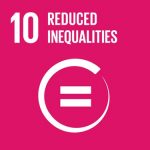Decades of sweeping demographic, economic and social change have radically transformed the structures, gender roles, and intergenerational bonds of families worldwide, initially in high-income countries and more recently in low- and middle- income countries. At the global level, however, changing families and family systems are inadequately documented and poorly understood. This project aims to provide a quantum leap in the study of Global Family Change (GFC) by focusing on the dramatic changes in family patterns that are unfolding in low- and middle-income countries (LMICs). By augmenting existing and ongoing research and data resources from high-income countries, this project seeks to:
Specific Aim 1 (GFC Data): Build a database to track and investigate Global Family Change (GFC), including:
(1) Develop a theory-based and policy-relevant set of comparative indicators of family change at the global level, encompassing (i) existing and novel indicators of family patterns and behaviors (e.g., percent and years sexually active before marriage), (ii) newly-developed indicators of life-course patterns and transitions (e.g., person years married or divorced, person years living with children and/or parents), (iii) innovative indicators of linked lives (e.g., extent of assortative mating, intensity of intergenerational relation, and prevalence of families with migrants), and (iv) information on family policies and linkages to contextual determinants of GFC;
(2) Create a public-use GFC Web Portal and Database covering the key period of rapid GFC since the mid-1980s for 118 countries across low and middle-income regions using vast existing micro-data that have largely been untapped for GFC research, namely Demographic and Health Surveys (DHS) and Multiple Indicator Cluster Surveys (MICS).
Specific Aim 2 (Determinants of GFC): Test the leading theories of how and why family systems change with economic and demographic development, including analyses of whether and how demographic and economic development leads to the convergence of family systems, and how culture and institutions moderate change to produce divergent patterns within regions or nations.
Specific Aim 3 (Consequences of GFC): Investigate the implications of GFC for the welfare of nations undergoing rapid social change by linking diverse patterns of GFC throughout LMICs to their demographic, economic, health, and social consequences.
Changes in families have important implications for child and adult well-being across all development stages also reflected in these Sustainable Development Goals (SDGs):





